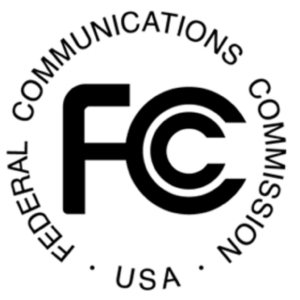Up to date Pointers Purpose to Improve Security, Innovation, and Progress in Crewed and Uncrewed Aviation
 The Federal Communications Fee (FCC) has introduced a brand new initiative to modernize spectrum guidelines for superior air mobility programs, a sector that mixes crewed and uncrewed plane for environment friendly transportation of individuals and cargo. The FCC’s Discover of Proposed Rulemaking (NPRM), adopted unanimously, goals to deal with the security, innovation, and progress wants of this fast-growing trade, in addition to different uncrewed plane programs (UAS) like drones.
The Federal Communications Fee (FCC) has introduced a brand new initiative to modernize spectrum guidelines for superior air mobility programs, a sector that mixes crewed and uncrewed plane for environment friendly transportation of individuals and cargo. The FCC’s Discover of Proposed Rulemaking (NPRM), adopted unanimously, goals to deal with the security, innovation, and progress wants of this fast-growing trade, in addition to different uncrewed plane programs (UAS) like drones.
“The superior air mobility applied sciences that our actions as we speak allow will assist make passenger and cargo transportation extra accessible, handy, and environment friendly sooner or later,” mentioned FCC Chairwoman Jessica Rosenworcel. “Going ahead they can even imply extra methods to assist throughout a disaster just like the fires in Los Angeles, by offering the power to ship personnel and provides to hard-to-reach areas, examine infrastructure in catastrophe, and help first responders with search-and-rescue operations.”
Modernizing Guidelines to Meet Trade Wants
The NPRM outlines a number of proposals to help superior air mobility programs. These programs use progressive applied sciences reminiscent of automated controls, novel propulsion strategies, and superior wi-fi communications. They’re designed for numerous functions, together with:
- Connecting distant communities to the nationwide aviation system.
- Offering airport shuttle providers and concrete transport.
- Enabling massive cargo supply.
Superior air mobility depends on wi-fi applied sciences for features like flight command and management, passenger broadband, and drone detection to make sure security in delicate areas.
Key Proposals within the FCC’s NPRM
The FCC’s proposals embody:
- Use of the 450 MHz Band for Command and Management
- Opening the 450 MHz band for aeronautical command and management operations.
- Permitting a single, nationwide license for this band.
- Adopting versatile guidelines to attenuate interference whereas guaranteeing strong operation throughout numerous altitudes.
- Drone Detection Operations within the 24 GHz Band
- Increasing radiolocation capabilities within the 24.45–24.65 GHz band to enhance drone detection applied sciences.
- Updates to In-Flight Connectivity Guidelines
- Modernizing guidelines for Industrial Aviation Air-Floor Programs within the 849–851 and 894–896 MHz bands.
- Supporting dependable in-flight broadband for passengers.
These updates mirror the FCC’s dedication to enabling the applied sciences that drive superior air mobility, whereas guaranteeing that operations stay protected and efficient.
Implications for the Future
Superior air mobility programs have the potential to revolutionize transportation by offering new methods to maneuver folks and items effectively. The NPRM is a big step towards integrating these programs into on a regular basis life. It additionally highlights the function of modernized wi-fi communications in guaranteeing their success.
For extra particulars, go to the FCC’s web site.
Need DRONELIFE information delivered to your inbox each weekday? Enroll right here.
Learn extra:


Miriam McNabb is the Editor-in-Chief of DRONELIFE and CEO of JobForDrones, an expert drone providers market, and a fascinated observer of the rising drone trade and the regulatory surroundings for drones. Miriam has penned over 3,000 articles targeted on the business drone area and is a world speaker and acknowledged determine within the trade. Miriam has a level from the College of Chicago and over 20 years of expertise in excessive tech gross sales and advertising and marketing for brand spanking new applied sciences.
For drone trade consulting or writing, E-mail Miriam.
TWITTER:@spaldingbarker
Subscribe to DroneLife right here.

